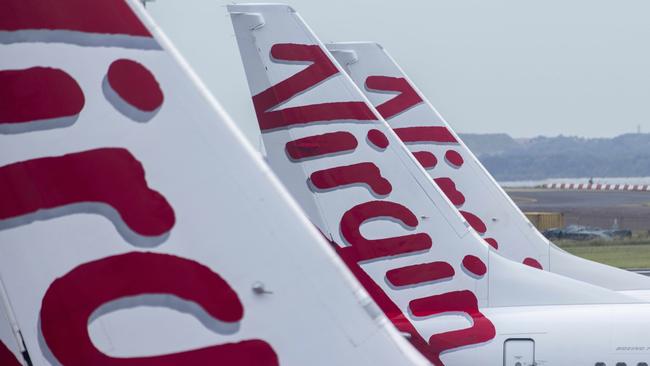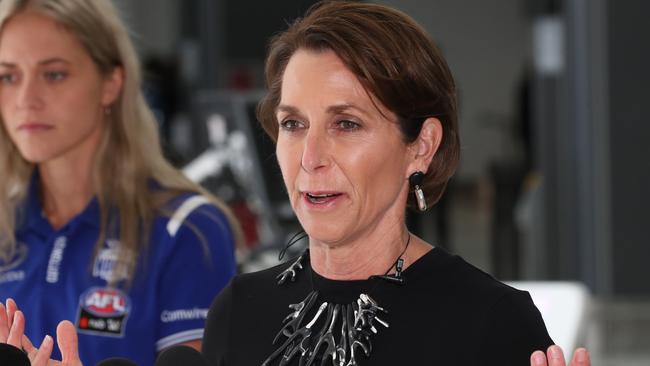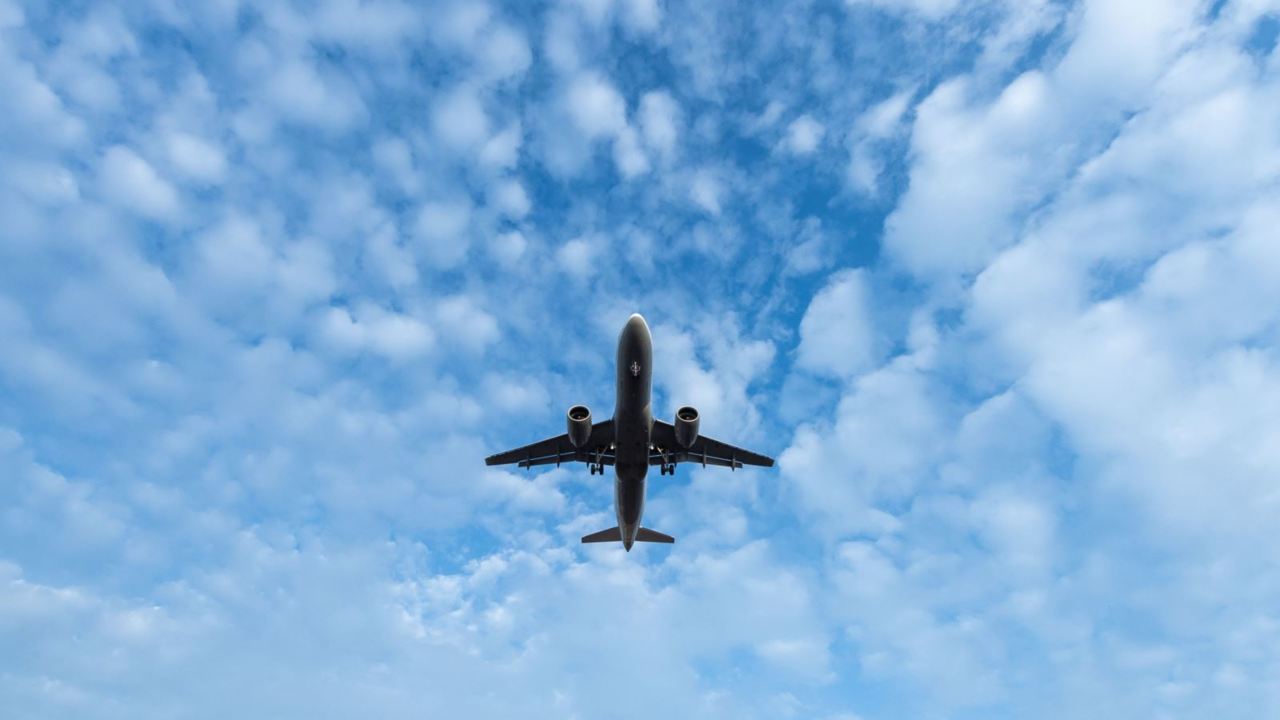Virgin Australia posted $3.1 billion loss in 2020 financial year amid Covid disaster
It’s been revealed the airline’s 2020 losses increased ten-fold, as flying was reduced to just 4.2 per cent of previous levels.

Business
Don't miss out on the headlines from Business. Followed categories will be added to My News.
Virgin Australia posted a $3.1bn loss in the year ending June 30, 2020 — a period in which the coronavirus pandemic halted flights and the country’s second-largest airline collapsed into voluntary administration.
The massive figure — almost ten times the $315m loss recorded by the airline in the previous year — was the company’s ninth annual negative return in a row.
Documents filed by the airline with the Australian Securities and Investments Commission also show the significant impact of the pandemic on the airline, with flying reduced to just 4.2 per cent of previous levels.
Revenue and income shrank by 22 per cent or $1.3bn, at the same time as expenditure grew by almost the same amount due to the impairment of assets such as aircraft and property.
Federal government assistance in the period totalled $165.8m, compared to the $550m received by Qantas.
The payments to Virgin included $80.5m in the JobKeeper wage subsidy for employees, $55m in relief from aviation charges, and about $30m in subsidies for domestic flights, as well as international repatriation and freight services.
The financial report highlighted the costly impact of lower future bookings and reduced income from the Velocity frequent flyer program, partly due to a surge in redemption activity driven by COVID-19 and administration.

The company appointed Deloitte in April to sell Virgin, at the time a publicly-listed company. The airline was later sold, for $3.5bn, to private equity group Bain Capital.
The airline has made about 3000 jobs redundant, and its new chief executive, former Jetstar boss Jayne Hrdlicka, has not ruled out cutting more of the 6000 remaining positions.
The airline’s fleet fell to 58 Boeing 737s with a further ten to be leased in coming months.
The financial reports show Virgin’s liabilities on June 30 exceeded its assets by $7.8bn compared to just over $1bn the previous year, largely as a result of changed reporting requirements under administration.
They also show Virgin was given access to a $125m unsecured debt facility provided by the Queensland Investments Corporation, as part of a deal with the state government.

Since Virgin emerged from administration in November, it has shifted to a “mid-market” strategy which targets the small and medium businesses and premium leisure customers.
“COVID-19 continues to impact economic conditions and the operations of the airline sector as governments implement and/or ease restrictions in attempts to contain the spread of the virus,” the documents lodged with ASIC read.
“The group continues to manage its response to these conditions and the resulting impact on the demand for its services. Impacts from the need to manage any ongoing implications from COVID-19 will be reflected in the group’s results in future financial years.”
Now an unlisted company, Virgin’s board is predominantly made up of Bain Capital executives, with the exception of Richard Branson’s Virgin Group delegate Warwick Negus.
Bain Capital global head of consumer and retail Ryan Cotton is the chairman, having previously worked in baseball operations at the Boston Red Sox.
Other than Ms Hrdlicka, none of the directors’ short biographies included in the report mentioned any prior aviation or airline experience.
Late on Tuesday a Virgin Australia spokeswoman said the 2020 accounts represented the financial position of the airline when the company was mid-administration.
“Since coming out of administration with new owners and a strong financial backing, Virgin Australia has a much stronger balance sheet,” she said.
“To support a recent surge in demand as Australians return to the skies, last month we announced we would be leasing an additional 10 Boeing 737-800 aircraft, recruiting for 370 new cabin crew roles, and that we’ve added new routes and expanded frequencies.”
Originally published as Virgin Australia posted $3.1 billion loss in 2020 financial year amid Covid disaster




